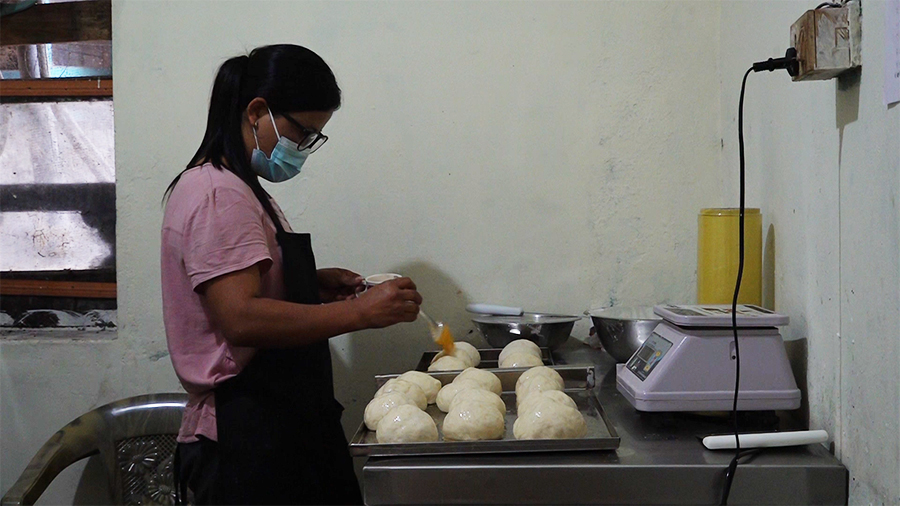
A group of eight determined women completed a month-long baking training programme and are now making waves in Tingtibi Town in Zhemgang. Thanks to their newfound baking skills, these talented women have successfully started selling cakes and are earning a decent income. Their journey began last year when they participated in a bakery and confectionery training course organised by the Department of Employment and Entrepreneurship.
 The Tashi Dagay Bakery Shop is in the heart of Tingtibi Town.
The Tashi Dagay Bakery Shop is in the heart of Tingtibi Town.
Equipped with their newly acquired expertise, these women have not only become skilled bakers but have also taken on the role of breadwinners for their families.
In their inaugural month of operation in May, the group earned nearly Nu 40,000 in profits.
While their business may be small in scale, the women are delighted to have the opportunity to apply the valuable skills they acquired through their training.
“We do not have to struggle like before. We can now bake cakes and sell them easily. I feel it has become convenient and better for us,” said Dawa Dema.
“Tingtibi is centrally located, and it connects various roads. So, our business is going well. Many people come to buy our products. We can make a good income,” said Ugyen Dema.
The Tashi Dagay Bakery Shop has about 15 varieties of bread and cakes on offer.
“Children mostly prefer cake while adults go for doughnuts and bread. Doughnuts and bread are our best sellers,” added Ugyen Dema.
“Our business is good, but since we are new at this, it is difficult to supply to other places,” added Dawa Dema.
The group’s daily sales at the Tashi Dagay Bakery Shop average between Nu 500 to 1000.
According to an official from the Department of Employment and Entrepreneurship’s office in Gelephu, the training is part of a village skills development programme supported by the United Nations Development Programme.
So far, the department has trained 19 people in Zhemgang, and an additional 21 individuals are undergoing the same training at Buli in Nangkor Gewog.
Pema Samdrup, Zhemgang
Edited by Sherub Dorji







